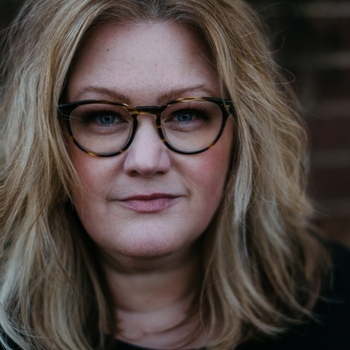
Lisa Long
Introduction
As a trauma therapist, I hope to be a portable sanctuary for clients to explore their inner world, their story and their connections—we all need to belong and matter. Fortunately, the therapeutic relationship is uniquely equipped to provide a safe place for clients to belong and matter. However, clients were wounded in some type of human relationship. Therefore, connection to relationship might seem counterintuitive to a person who experienced harm within relationship. Nevertheless, the truth is healing requires a reparative experience within the construct of relationship. As the adage goes, “we are wounded in relationship and we heal in relationship.” This can feel risky and scary to clients. It’s part of why engaging in therapy is such a brave move—a risk worth taking. I believe if clients have a safe place to feel their feelings they can heal from anything. We are emotional and spiritual beings designed to live wholeheartedly and to heal—for the trauma survivor, healing work demands a safe place. Safety is multifaceted, including vital elements such as attunement, respect, and curiosity. One of the most damaging effects of trauma is how it muzzles and disfigures a person’s voice. As a trauma therapist, I am keenly aware of the need in trauma clients to have autonomy and voice in the process. Not the least of which includes the pace at which therapy progresses. When clients are empowered in this way the felt experience is an act of reclamation. Therefore, I focus on attuning to my clients within the context of respect and curiosity. I hope to empower my clients toward personal healing and recovery of their voice. When trauma enters a person’s story it frequently compels negative thoughts that mar the idea of self. This in turn impairs connection to self and others, setting the soul in conflict because it is wired for connection—unaddressed, a trauma survivor suffers from this unmet need, grappling with a longing for connection while terrified of the very same. Therefore, my desire as a trauma therapist is to facilitate recovery of one’s true self by engaging heart in a way that helps clients live more fully, connected to themselves and others. As a result, I am passionate about working with the emotional effects of abuse and trauma, helping my clients navigate issues stemming from traumatic experiences. My counseling approach is bottom-up (neurobiology first), attachment-informed and client-centered through a narrative/story lens which incorporates affect work, in addition to here and now work to help heal relational brokenness, as well as mindfulness practices to decrease judgmental ideology and increase awareness, compassion, clarity and acceptance of self.
Highlights
- Accepting new clients
- Offers free consultation
- In-person & telehealth appointments
Licenses
-
LPC-MHSP #6053 (TN)
Specialties
Additional focus areas
Treatment Approaches
Population focus
Appointment types
- Individuals
- Groups
- Classes
Age groups
-
Young Adults (18-24)
-
Adults (24+)
-
Elders (65+)
Languages
-
English
Faiths
-
Christian
-
Interfaith
-
Catholic
-
Agnostic
-
Atheist
-
Latter-day Saints/Mormon
-
Jewish
-
Multi-Faith
-
Buddhist
Free intro call available
Pay with insurance
Looking for practitioners who accept insurance?
Pay out-of-pocket
-
Regular 50 minute session $150
-
Sliding Scale $125 - $145